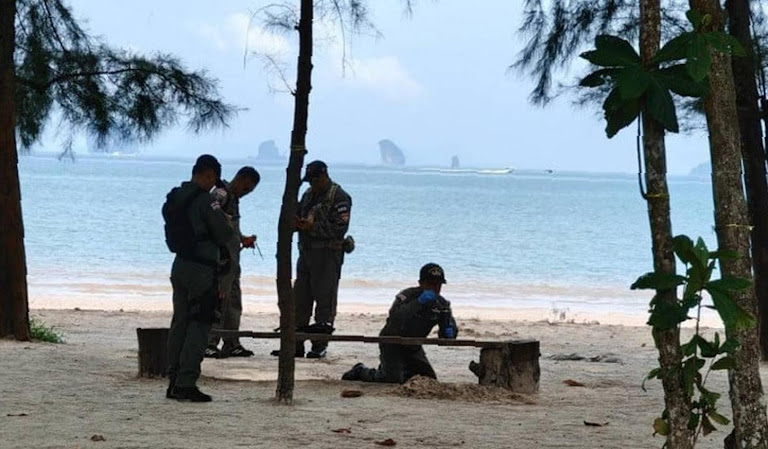Thailand Bombings Expose Decades of Neglect: Will Tourism Pay?
Tourist bombings expose a festering separatist insurgency fueled by deep-rooted political and economic neglect of Thailand’s Malay-Muslim minority.

What looks like random violence is often a sign of systemic failure. But what if that systemic failure is itself a symptom? The recent bomb discoveries in Thailand’s tourist hotspots — Phuket, Phang Nga, and Krabi — are more than just isolated incidents, and to treat them as such is a grave error. They are symptoms of a deeper, festering wound: a long-ignored separatist insurgency and a government seemingly paralyzed by it. But the paralysis, the inability to forge a lasting peace, speaks to something even deeper: a fundamental tension between Thailand’s image of itself and the reality of its diverse population. The Phuket News reports this calculated move threatens to destabilize tourism.
The narrative is familiar: a decades-long conflict in Thailand’s Deep South, typically confined to provinces like Pattani, Yala, and Narathiwat. This insurgency, led by groups like Barisan Revolusi Nasional (BRN) and the Patani United Liberation Organization (PULO), has claimed thousands of lives. Now, the battlefield is expanding, targeting the country’s economic heart, aiming to hit the state where it hurts most: the pocketbook.
These attacks aren’t just a random act of violence, nor are they a simple matter of bad actors doing bad things. According to a security source, “These operatives are ideal for missions outside the traditional conflict zones in the Deep South because they fly under the radar. They are unknown to authorities and have no traceable background." The use of "white faces” — new recruits with no criminal record — exposes the limitations of standard security tactics, and signals a shift in the BRN’s operational strategy.
This isn’t about defusing bombs; it’s about confronting decades of political and economic marginalization that fuels the insurgency in the first place. The fact that the BRN is suspected of orchestrating these attacks, reportedly driven by a younger, more radical faction, highlights a generational divide within the movement. There are those open to peace talks versus those willing to escalate violence to achieve their goals. It’s a dynamic seen in separatist movements worldwide, from Northern Ireland to the Basque Country: the old guard versus the new, compromise versus confrontation.
This all begs the question: What is the root cause of this insurgency? The answer lies in the complex interplay of ethnic, religious, and economic factors that have long marginalized the Malay-Muslim population in the Deep South. Scholars like Duncan McCargo have argued that the Thai state’s assimilationist policies and its failure to address historical grievances have fueled resentment and provided fertile ground for separatist movements. Consider the 1902 Siamese annexation of Pattani, Yala, Narathiwat and Satun, regions that had previously enjoyed a degree of autonomy. Bangkok’s subsequent attempts to impose Thai language and culture over the Malay-Muslim identity further cemented a sense of otherness and injustice.
“The goal is clearly to damage the economy of the Andaman region, which relies heavily on tourism. These provinces are economic lifelines, generating significant income for the country.”
Consider that Thailand has seen multiple iterations of counterinsurgency strategies, none of which have demonstrably succeeded in resolving the core grievances. The government’s silence and instruction to military and police personnel to refrain from speaking to the media suggest a lack of a coherent strategy beyond containment, instead of a clear path forward to address the conflict’s root causes. It’s a strategy reminiscent of whack-a-mole: suppress one outbreak, only for another to emerge somewhere else.
Thailand’s economic dependence on tourism also plays a role. Tourism accounts for about 12% of Thailand’s GDP. So targeting the tourist industry strikes at a key source of Thailand’s national income, giving the insurgents greater leverage, potentially influencing policy decisions that may not favor the central government. But it also reveals a deeper truth: Thailand’s economic success has not been evenly distributed. The benefits of tourism largely bypass the Deep South, exacerbating existing inequalities and fueling a sense of relative deprivation that insurgents readily exploit.
The problem isn’t just terrorism; it’s the government’s seeming inability to forge a more inclusive and just society. These bombings are a reminder that neglecting the systemic causes of conflict eventually brings the conflict to you. But perhaps “neglecting” is too kind. Perhaps it’s about the difficulty of reconciling a unitary national identity with the lived reality of a diverse population. The question Thailand faces now is not just about suppressing violence, but about reimagining itself in a way that includes and empowers those who have long felt excluded. Until the Thai government acknowledges this and tackles the underlying drivers of discontent, these cycles of violence will continue, leaving a stain on the entire nation. And that stain risks becoming a permanent mark.









